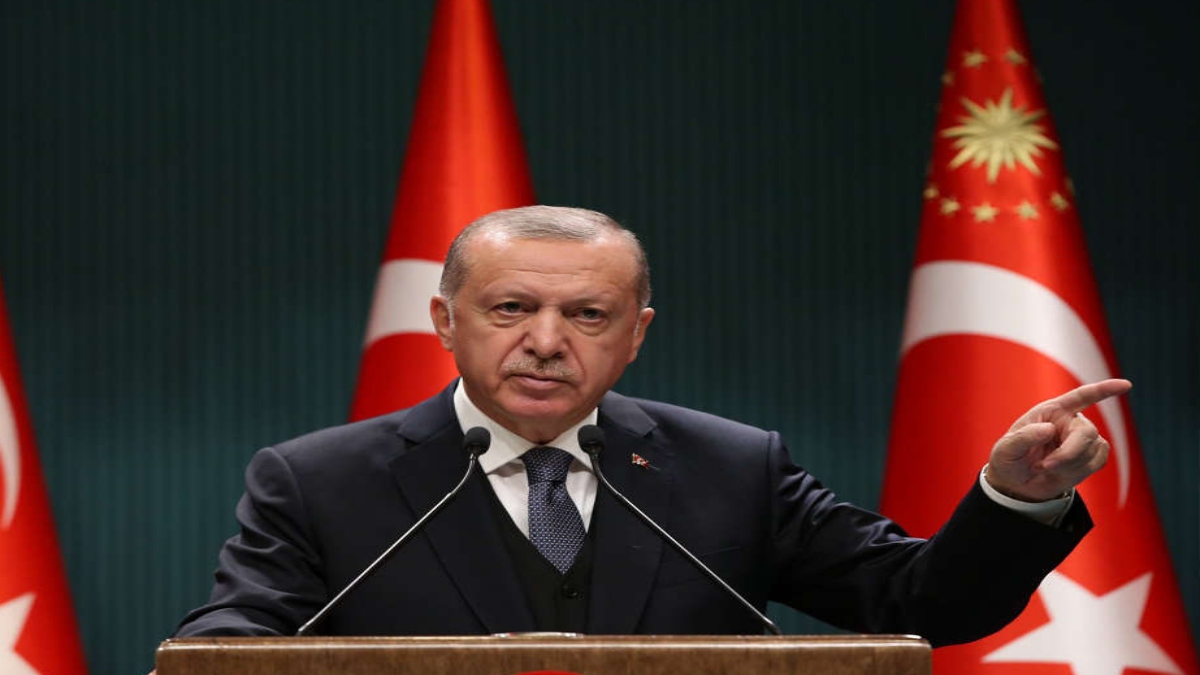


The nation now wants to be known as “Türkiye.”
Turkish President Recep Tayyip Erdoğan claims, “Türkiye is the best representation and expression of the Turkish people’s culture, civilisation, and values.” The name has been changed to improve the country’s image and connect it to its cultural roots in Turkish history. The name “Türkiye” has already been used in Turkey, but its anglicised version “Turkey” has been addressed globally.
The nation’s rebranding process began last year in December 2021. Since then, Turkey has been in the limelight for the same. Turkish President Tayyip Erdoğan released a statement last year in December confirming the change of the country’s recognised name from Turkey to Türkiye. According to Erdoğan, the new name is necessary to connect with foreign states, international institutions and organisations, and export goods.
After agreeing to a formal request from Ankara, the European country will now be called Türkiye at the United Nations. Other international organisations like the World Trade Organisation and NATO have also approved Türkiye.
WHY TÜRKIYE?
In the Turkish language, the country is referred to as Türkiye. Most Turks have already known their country as Türkiye, a name adopted by the country after declaring independence in 1923, but Turkey remained in the West. Over the years, Europeans have termed the Ottoman state, and afterward Turkiye, by different names. But the name that has persisted the most is the Latin “Turquia” and the more common “Turkey.”
The explanations for the country’s intention to change its name to Türkiye was stated in a report published in 2021, wherein it was reported that the country was tired of trolls circulating over the internet. Adding more to the justifications, the country’s government claimed that Google’s search results while typing the name Turkey were displeasing.
In an earlier article, TRT World explained the decision, saying that Googling “Turkey” yields a jumbled set of images, editorials, and dictionary definitions that try to conflate the country as turkey, a large bird native to North America that is famous for being served on Thanksgiving dinners or Christmas.
The definition of “Turkey” in the Cambridge Dictionary, which reads “something that falls badly,” also drew criticism from the administration.
REBRANDING CAMPAIGN
The Turkish government launched a massive rebranding campaign just ahead of the upcoming elections, resulting in “Made in Türkiye” being visible on all exported goods. A tourism initiative with the slogan “Hello Türkiye” was also started in January.
According to the BBC, government officials backed the initiative to address the nation’s economic issues, but few people outside that circle have embraced it.
The government made an effort to change its name to English this year by releasing a promotional video. In the footage, visitors worldwide can be seen greeting “Hello Türkiye” at well-known landmarks. Turkish President Recep Tayyip Erdoğan also announced that the Turkish national carrier will rebrand as “Türkiye Hava Yolları” instead of “Turkish Airlines” as part of the campaign to rebrand his country as “Türkiye” rather than “Turkey.”
TÜRKIYE’S TACKLING ACT
A substantial rebranding campaign by the government has begun, and all exported goods will subsequently have the phrase “Made in Türkiye.” In addition, according to the BBC, the government started a tourist campaign in January this year with the tagline “Hello Türkiye.”
The decision to change the country’s name received mixed reviews from different parts of the world. Many social media users use this fact to justify their outrageous criticism of the Turkish government’s decision, while others think it was a necessary rebranding. As President Recep Tayyip Erdoğan prepares for elections the following year, amid economic turmoil and rising inflation, others claim it is an ineffective distraction.
According to an international constitutional law expert, the Turkish people’s name change is vital to the nation to drive their identity and has no negative diplomatic repercussions. It corresponds to the trajectories in what is in a name. Türkiye is the most exemplary depiction and expression of the Turkish people’s culture, civilization, and beliefs.”
Many Türkiye citizens believe that referring to the country by its local variant makes sense and is compatible with the government’s goals of choosing how others should recognize it.
Business transactions, communications with foreign parties, and correspondence will adopt the country’s new name, ensuring that the name “Turkiye” will strengthen even further. Moreover, the name will evolve into a brand representing the nation’s experience in numerous industries if used in international trade ventures. As many as eleven countries have changed or amended their names over the years; thus, it’s not uncommon for Turkey to change its name to Türkiye. However, how quickly the world will adapt to the country’s new name Tur-key-yay remains to be seen.
The author is a researcher at the Jawaharlal Nehru University.